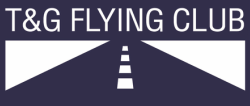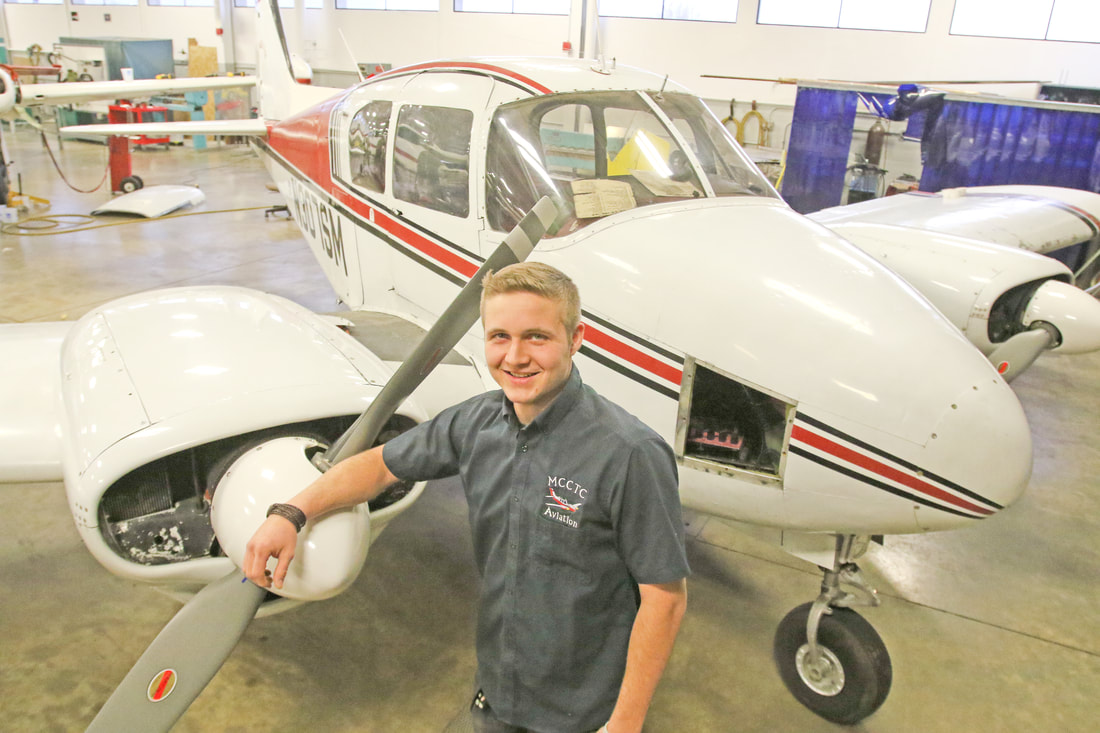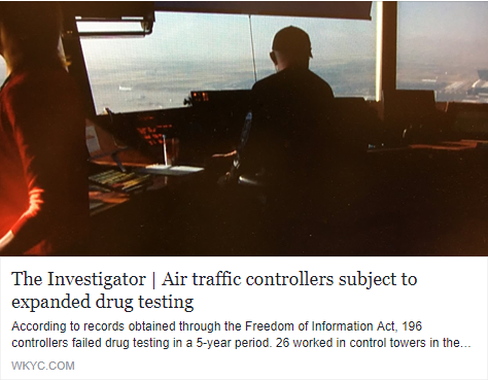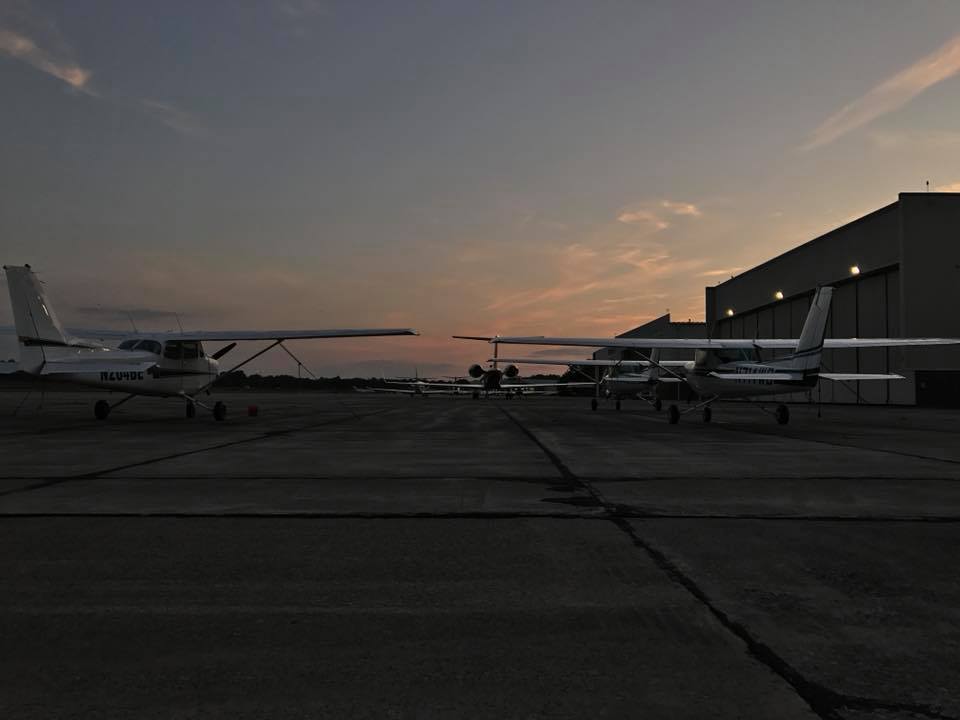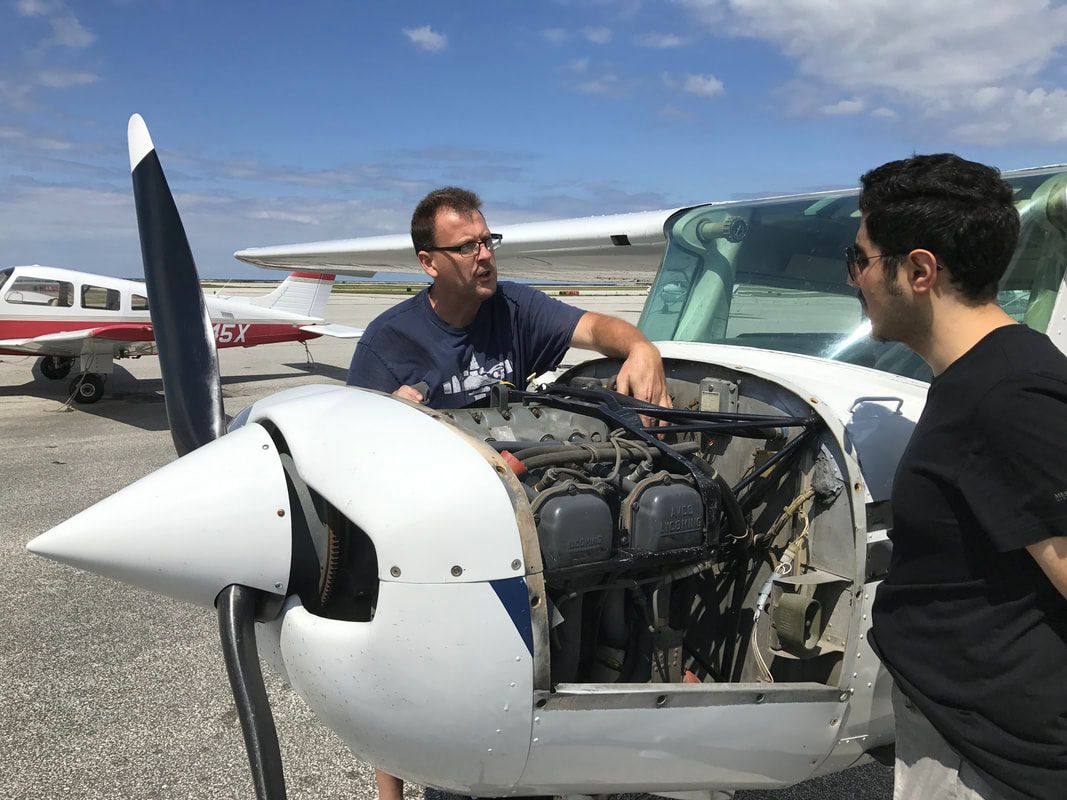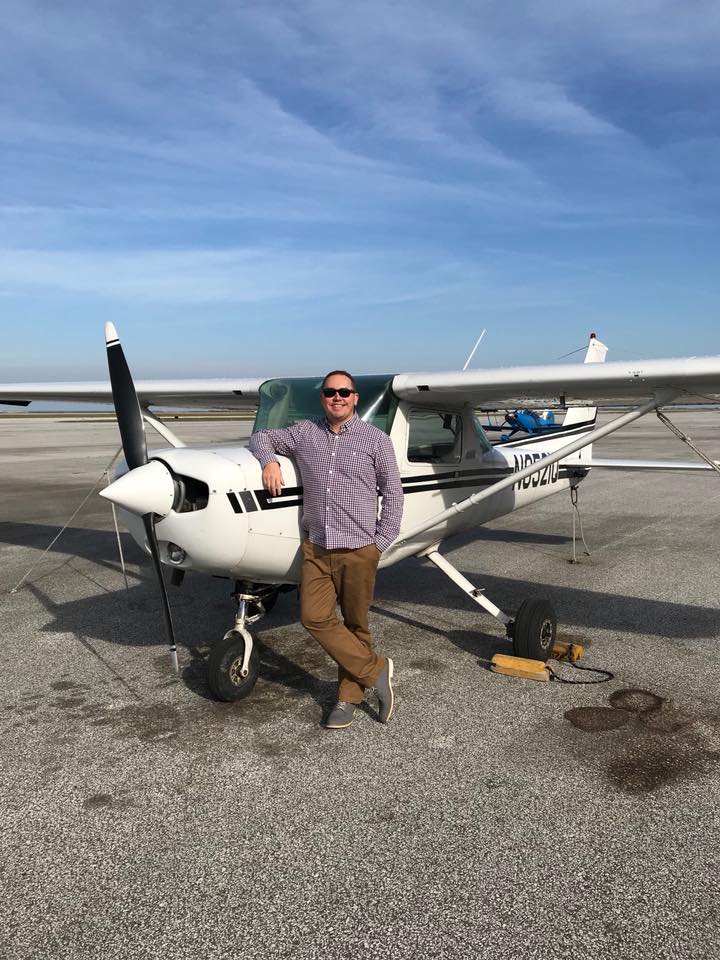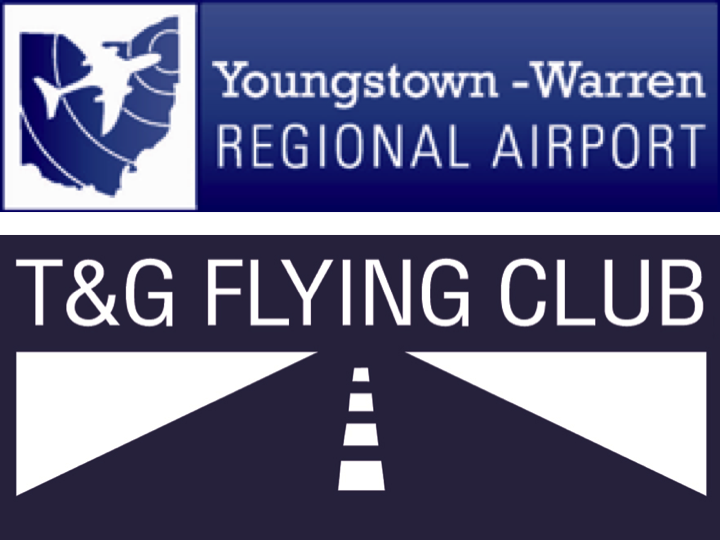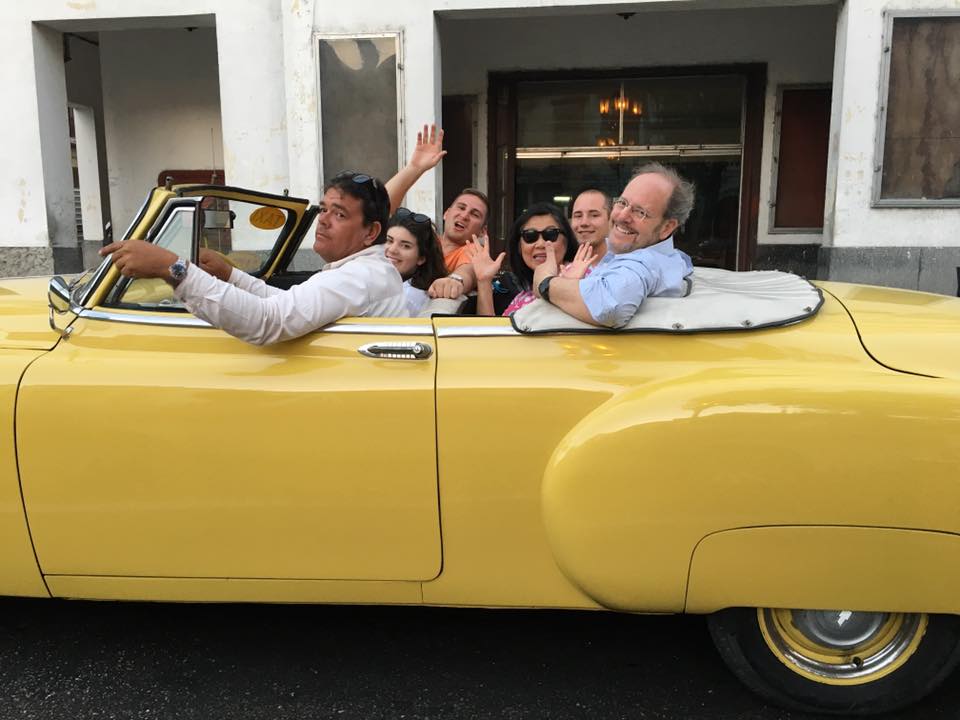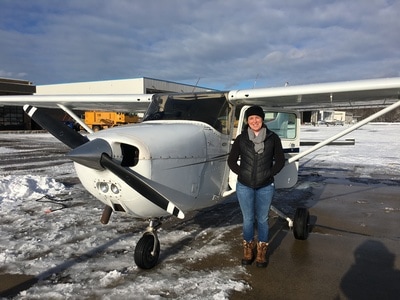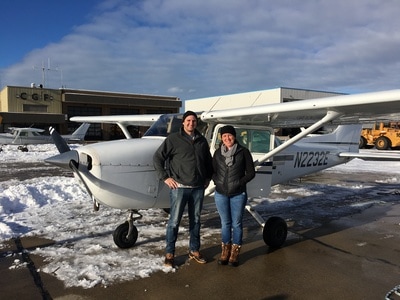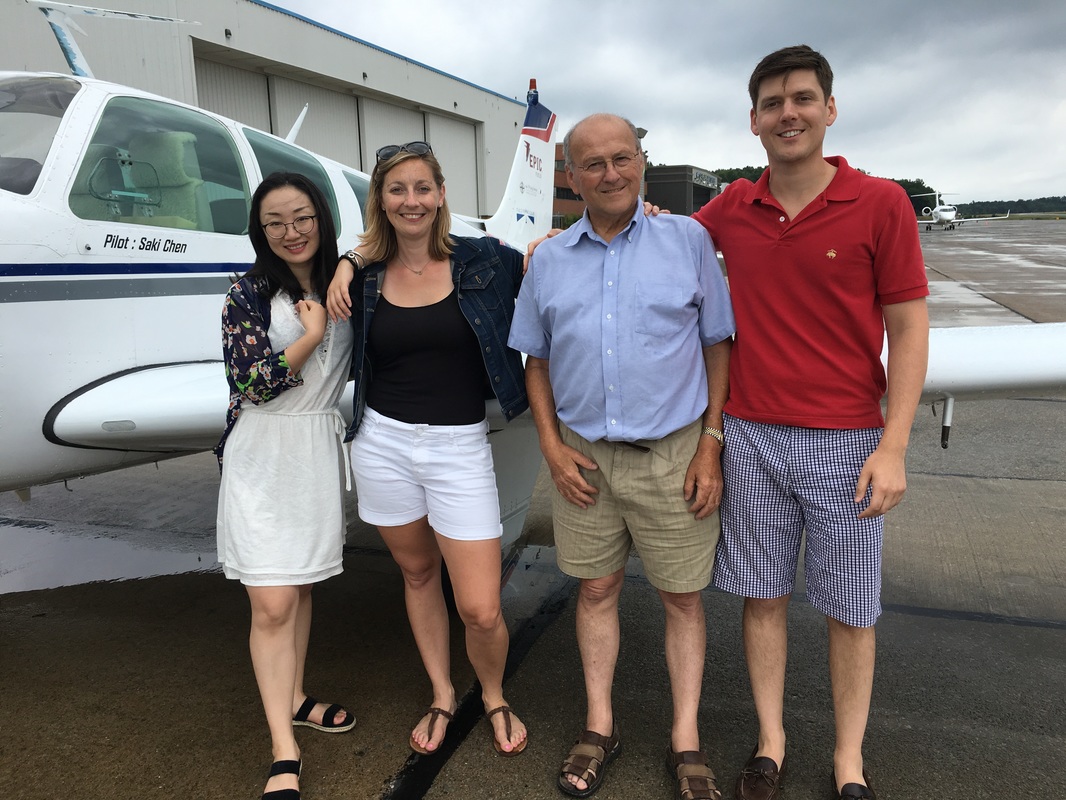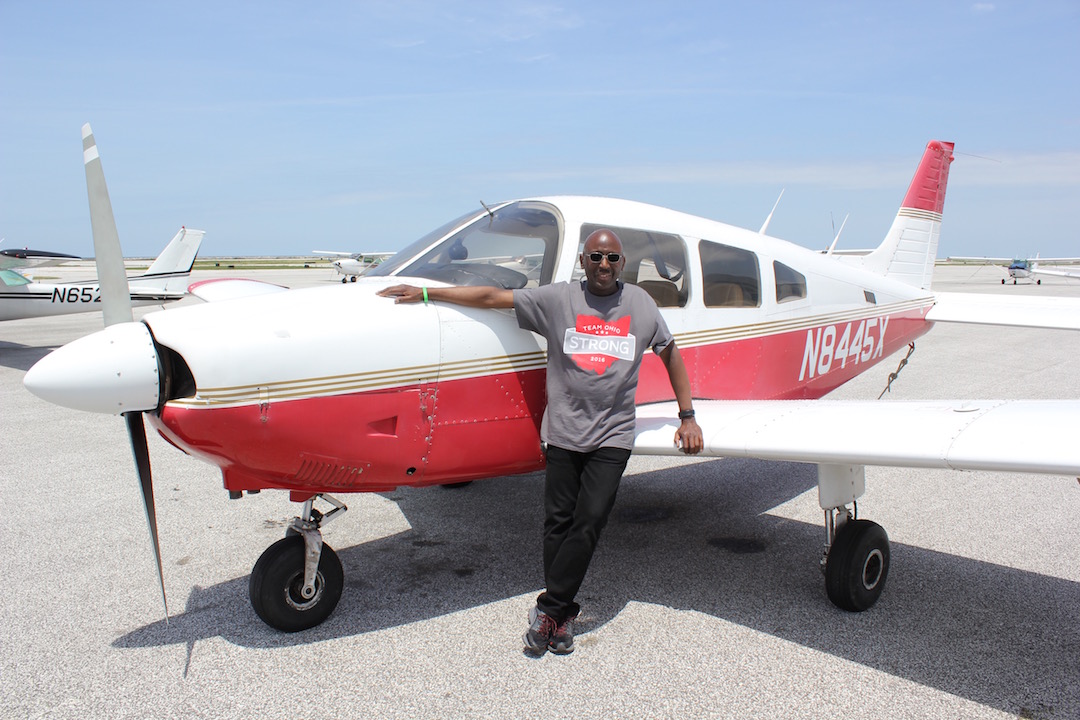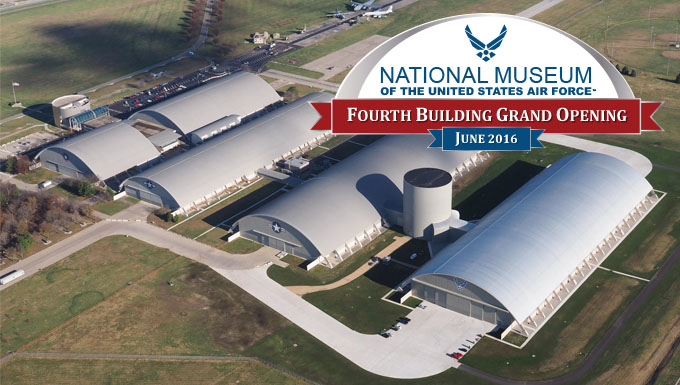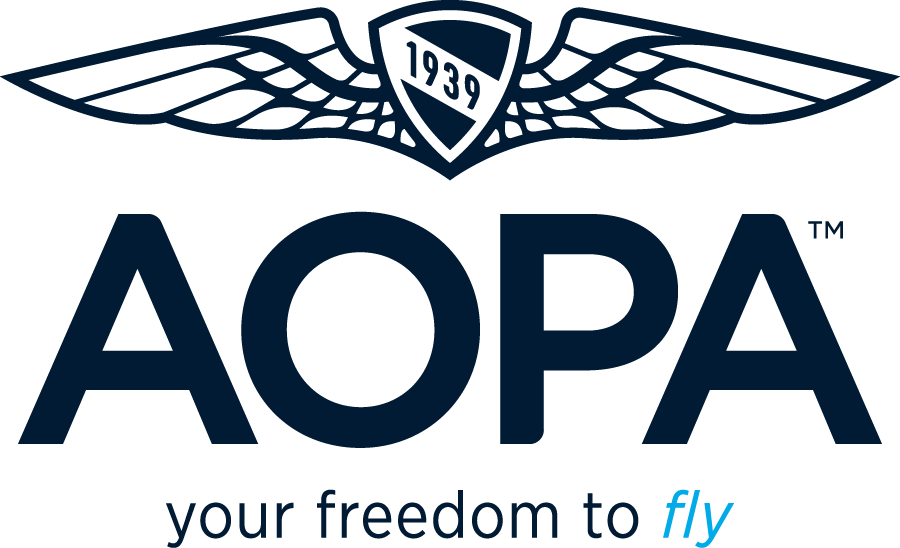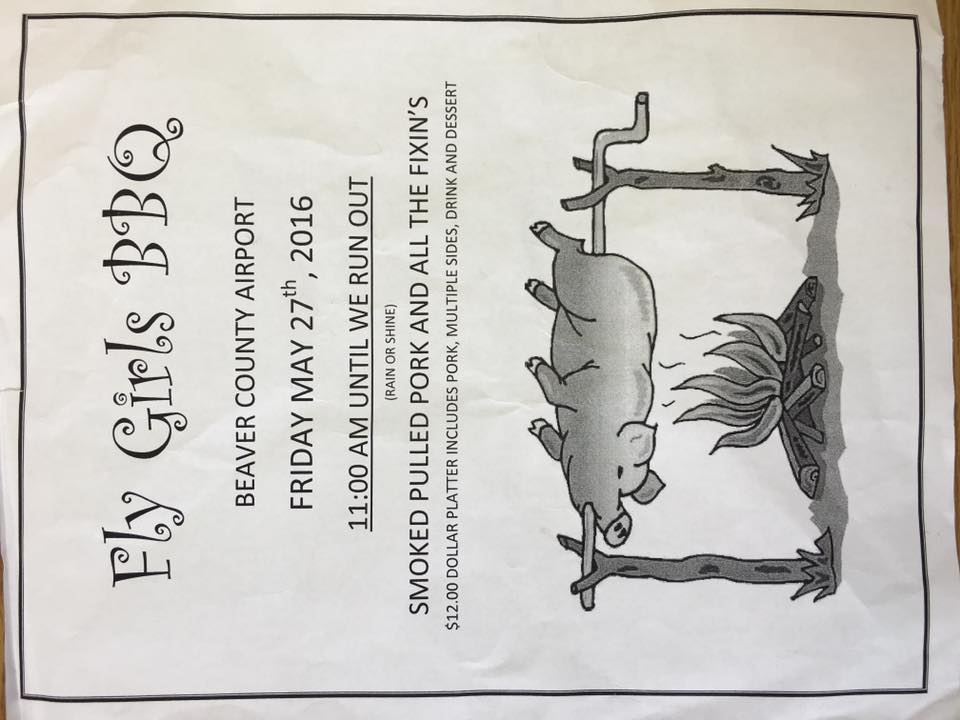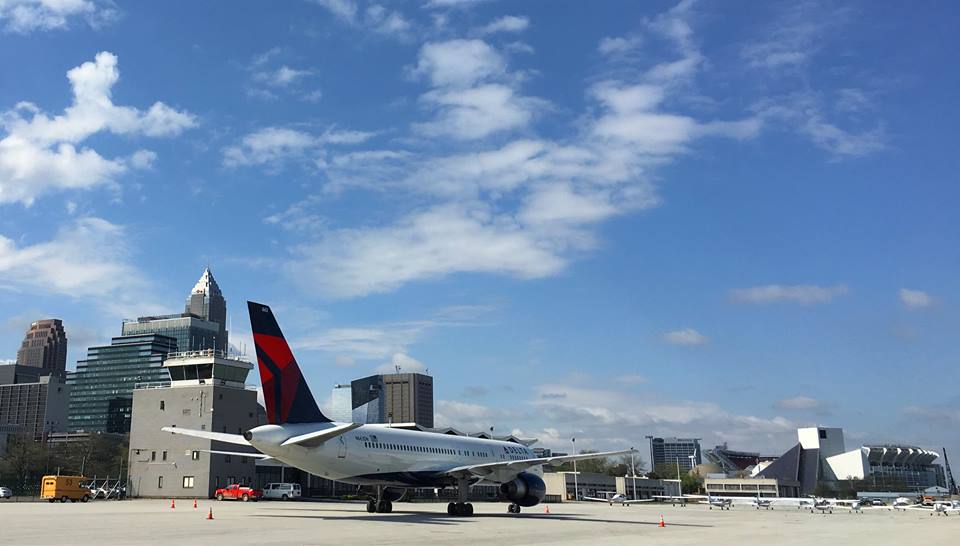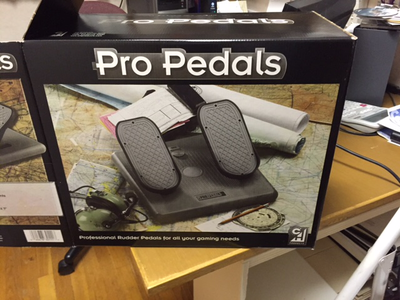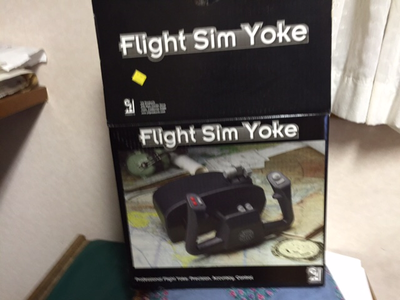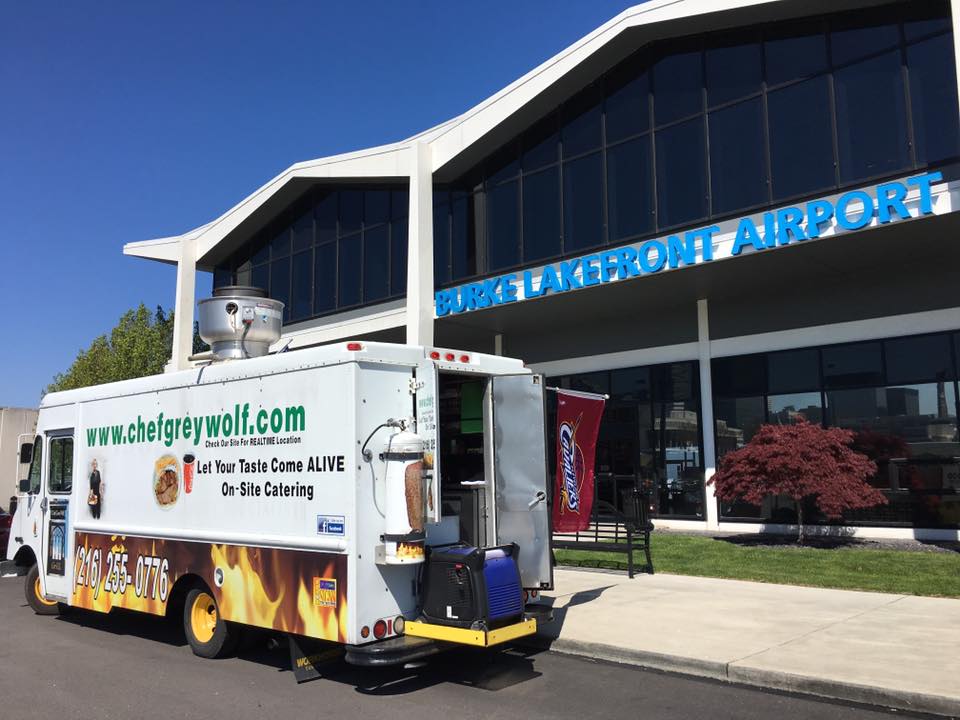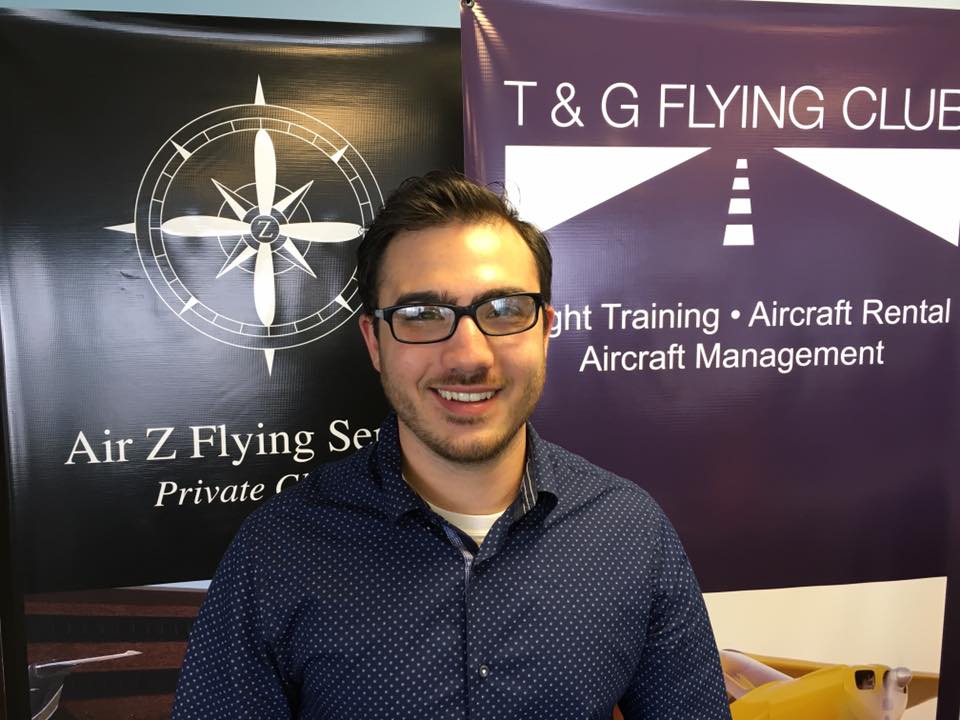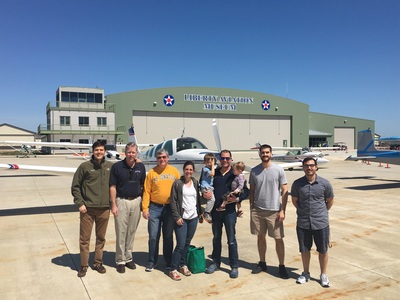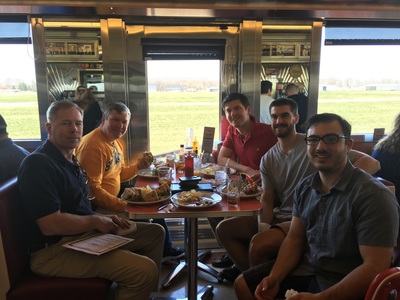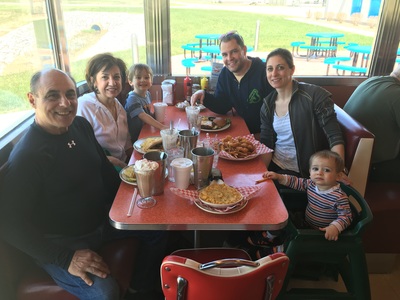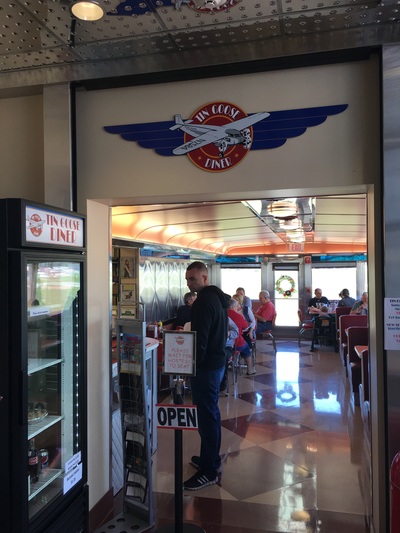Air traffic controllers are being subject to expanded drug testing which will now include opiates.2/23/2018 The spring session of Private Pilot Ground School will begin Tuesday, March 6. Ground school will be held at Burke Lakefront every Tuesday for 12 weeks from 6:30 pm to 8:30 pm. The one-time fee is $250 plus materials. You may join at any time. Pay once attend for life! Sign up now!
For questions or help signing up please give us a call at (216) 289-5094. MOST FREQUENTLY ASKED QUESTIONS General Q. Is it difficult to fly an aircraft? A. No. It is not particularly difficult. As a beginning student pilot, you will do most of the actual flying (handling the controls of the aircraft). Q. When may I begin to fly? A. Immediately. However, you will need to apply for certain certificates, as described in this guide, in preparation for solo flight. Q. Is flying safe? A. A well-built and maintained aircraft, flown by a competent and prudent pilot, makes flying as safe or safer than many other forms of transportation. Q. If engine failure occurs, what will happen? A. Modern aircraft engines are very reliable, and complete engine failure is a rare occurrence. If the improbable does happen, you will not “fall out of the sky.” Just do what the instructor had you practice during lessons-- select a good landing area and land. Student Pilot Flight Training Q. What are the eligibility requirements for a student pilot? A. The specific aeronautical experience requirements are outlined in 14 CFR part 61. For the student pilot certificate requirements, refer to subpart C section 83. Q. Where can I obtain my ground and flight school training? A. Most airport operators can furnish this information, or you may contact the nearest FSDO. Q. Is there a set number of flight instructional hours I will receive before I solo? A. No. The instructor will not allow you to solo until you have learned to perform certain maneuvers. These maneuvers include safe takeoffs and landings. You must be able to maintain positive control of the aircraft at all times and to use good judgment. Q. What should I know about Title 14 of the Code of Federal Regulations (14 CFR) prior to my first solo? A. Your flight instructor will determine that you are familiar with appropriate portions of 14 CFR part 61, the general and visual flight rules of 14 CFR part 91, and will administer and grade a pre-solo written test prior to solo endorsement. The pre-solo written test will also include questions on the flight characteristics and operational limitations of the make and model aircraft to be flown. Q. What does an appropriate logbook endorsement for solo mean? A. It means a verification by an authorized flight instructor showing that on the date specified, the student was given dual instruction and found competent to make solo flights. Q. When is the first solo endorsement required? A. A student pilot must have a first solo endorsement dated within 90 days prior to any solo flight. Q. What is the difference between a recreational pilot certificate and a private pilot certificate? A. The recreational pilot has fewer privileges than the private pilot. The holder of a recreational pilot certificate is allowed to fly an aircraft within 50 nautical miles from the airport where instruction was received and cannot operate in airspace where communications with air traffic control are required. Since qualification training in these areas is not required, a person should be able to obtain a recreational pilot certificate in fewer flight hours than required for a private pilot certificate. All privileges and limitations of the recreational pilot certificate are listed in 14 CFR part 61, section 101. Q. Does a student pilot automatically have the privilege of cross-country flying after soloing? A. No. An instructor must have reviewed the pilot’s preflight planning and preparation for solo cross-country flight and determine that the flight can be made safely under the known circumstances and conditions. The instructor must endorse the student pilot’s logbook prior to each cross-country flight, stating the pilot is considered competent to make the flight. Under certain conditions, an instructor may authorize repeated solo flights over a given route. Q. As a student pilot, am I permitted to carry passengers prior to receipt of my recreational pilot certificate or private pilot certificate? A. No. Q. Must I have a Federal Communications Commission (FCC) radiotelephone operator’s permit to operate an aircraft radio transmitter? A. No. Q. For the purpose of obtaining an additional certificate or rating, may the holder of a recreational pilot certificate act as pilot in command on flights: (1) between sunset and sunrise; and (2) in airspace which requires communication with air traffic control? A. Yes, provided an authorized flight instructor has given the recreational pilot the required ground and flight training in these areas, and endorsed the pilot’s logbook. The recreational pilot will be required to carry the logbook with the required endorsements on such flights. Q. How can the holder of a sport or recreational pilot certificate ensure that no inadvertent entry is made into airspace requiring communication with air traffic control? A. The pilot must select readily identifiable landmarks that are well beyond the boundaries of the airspace requiring communication with air traffic control. During training, instruction in identification of airspace requiring communication with air traffic control will be provided. Student Pilot Requirements: Medical and Student Pilot Certificates Q. When do I need a student pilot certificate? A. Prior to solo flight. Q. How do I obtain a student pilot certificate? A. Student pilot certificates may be issued by an FAA Inspector or an FAA Designated Pilot Examiner. Upon your request, a combination medical certificate and student pilot certificate will be issued by an FAA-Authorized Aviation Medical Examiner upon the satisfactory completion of your physical examination. Applicants who fail to meet certain requirements or who have physical disabilities, which might limit, but not prevent, their acting as pilots should contact their local FSDO. Q. How long are my student pilot and medical certificates valid? A. The student pilot certificate will expire at the end of the 24th month after the month in which it was issued. The third-class medical certificate will expire at the end of the 36th month after the month in which it was issued. A medical certificate issued after the age of 40, expires at the end of the 24th month in which it was issued. Q. Can my student pilot certificate be renewed? A. No, but a new student pilot certificate may be issued by an: (1) FAA-Authorized Aviation Medical Examiner, upon completion of the required examination; or (2) FAA Inspector or FAA-Designated Pilot Examiner if you already hold a valid medical certificate or if you are not required to hold a medical certificate. Q. If my original student pilot certificate has been endorsed for solo, do I lose this endorsement on my new certificate? A. The endorsements are still valid, but are not transferred to the new certificate. Retain the old certificate as a record of these endorsements. Q. Should my flight instructor endorse my student pilot certificate before or after my first solo flight? A. The endorsement on the student pilot certificate certifying that the holder is competent to solo must be made by the flight instructor prior to the first solo flight. Q. If I solo in more than one make and model aircraft, must I have an endorsement for each on my student pilot certificate? A. Yes. Your flight instructor must make this endorsement prior to the first solo flight in each make and model aircraft. Q. Does the endorsement to solo permit me to make solo cross-country flights? A. No. Your flight instructor must specifically endorse your student pilot certificate to permit cross-country flights. Q. Must I carry my student pilot certificate when I am piloting an aircraft in solo flight? A. Yes. The certificate should be in your physical possession or readily accessible. Q. Is there a charge for the student pilot certificate? A. When the student pilot certificate is issued by a FSDO there is no charge. An FAA-Designated Pilot Examiner is allowed to charge a reasonable fee for issuing Student Pilot Certificates, and processing the necessary reports. The FAA-Authorized Aviation Medical Examiner will charge a fee for the physical examination in connection with issuing the combination medical and student pilot certificate. Q. When do I need a medical certificate? A. Except for sport pilot applicants, you will need a medical certificate prior to solo flight if you are operating an airplane, helicopter, gyroplane, or airship. It is suggested you obtain your medical certificate prior to beginning flight training. This will assure you are aware of any condition that could prevent you from obtaining a medical certificate prior to making a financial investment in flight training. Q. If required, how do I get a medical certificate? A. By passing a physical examination administered by a doctor who is an FAA-Authorized Aviation Medical Examiner. Q. Where do I get my medical certificate? A. From any FAA-Authorized Aviation Medical Examiner. There are numerous doctors who are FAA-Authorized Aviation Medical Examiners. Q. Where can I get a list of FAA-Authorized Aviation Medical Examiners? A. The FAA lists a directory on the Internet on the Civil Aeromedical Institute’s web site. www.faa.gov/pilots/amelocator/ Q. When required, what class of medical certificate must a student pilot have? A. Third-class, although any class will suffice. Medical certificates are designated as first-class, second-class, or third-class. Generally, the firstclass is designed for the airline transport pilot; the second-class for the commercial pilot; and the third-class for the student, recreational, and private pilot. Q. If I have a physical disability, is there any provision for obtaining a medical certificate? A. Yes. Medical certificates can be issued in many cases where physical disabilities are involved. Depending upon the certificate held and the nature of the disability, operating limitations may be imposed. If you have any questions, contact an FAA-Authorized Aviation Medical Examiner prior to beginning flight training. Q. Must I have my medical certificate, when I am piloting an aircraft in solo flight? A. Yes. The certificate should be in your physical possession or readily accessible. Sport Pilot, Recreational Pilot, and Private Pilot Knowledge Tests Q. What is the age requirement to take the sport pilot, recreational pilot, or private pilot knowledge test? A. An applicant must be at least 15 years of age to take the test, although applicants for the balloon or glider tests must be 14 years of age. Prior to taking the knowledge test, an applicant shall be asked to present a birth certificate or other official documentation as evidence of meeting the age requirement. 2. Q. What aircraft can I fly as a sport pilot? A. You are limited to flying an aircraft that meets the definition of a lightsport aircraft (LSA). An LSA is any certificated aircraft that meets the following performance parameters: 1,320 pounds Maximum Gross Weight (1,430 pounds for seaplanes) 45 knots (51 mph) Max Landing Configuration Stall 120 knots (138 mph) Max. Straight & Level Single or Two seat Aircraft Fixed Pitch or Ground Adjustable Propeller Fixed Landing Gear (except for amphibious aircraft) Q. What are the restrictions on a sport pilot? A. Sport pilots cannot make flights: • at night; • in controlled airspace unless you receive training and a logbook endorsement; • outside the U.S. without advance permission from that country(ies); • for the purpose of sight-seeing with passengers for charity fundraisers; • above 10,000' MSL; • when the flight or surface visibility is less than 3 statute miles; • unless you can see the surface of the Earth for flight reference; • in LSA with a maximum speed in level flight with maximum continuous power (Vh) of greater than 87 knots (100 mph), unless you receive training and a logbook endorsement; • if the operating limitations issued with the aircraft do not permit that activity; 18 • contrary to any limitation listed on the pilot’s certificate, U.S. driver’s license, FAA medical certificate, or logbook endorsement(s); and • while carrying a passenger or property for compensation or hire (no commercial operations). Q. How should I prepare for the knowledge test? A. To adequately prepare for the knowledge test, your instructor should review with you: (1) 14 CFR part 61, section 97 (if preparing for the recreational pilot knowledge test); (2) 14 CFR part 61, section 105 (if preparing for the private pilot knowledge test); or (3) 14 CFR part 61, section 309 (if preparing for the sport pilot knowledge test). The regulations require an applicant to have logged ground training from an authorized instructor, or to present evidence of having satisfactorily completed a course of instruction or home-study course in the knowledge areas appropriate to the category and class aircraft for the rating sought. Q. What document or documents must I present prior to taking a knowledge test? A. An applicant for a knowledge test must present appropriate personal identification. The identification must include a photograph of the applicant, the applicant’s signature, and the applicant’s actual residential address (if different from the mailing address). This information may be presented in more than one form. The applicant must also present one of the following: (1) A certificate of graduation from an FAA-approved pilot school or pilot training course appropriate to the certificate or rating sought, or a statement of accomplishment from the school certifying the satisfactory completion of the ground-school portion of such a course. (2) A written statement or logbook endorsement from an FAA-Certificated Ground or Flight Instructor, certifying that the applicant has satisfactorily completed an applicable ground training or home-study course and is prepared for the knowledge test. (3) A certificate of graduation or statement of accomplishment from a ground-school course appropriate to the certificate or rating sought conducted by an agency, such as a high school, college, adult education program, the Civil Air Patrol, or an ROTC Flight Training Program. (4) A certificate of graduation from a home-study course developed by the aeronautical enterprise providing the study material. The certificate of graduation must correspond to the FAA knowledge test for the certificate or rating sought. The aeronautical enterprise providing the course of study must also supply a comprehensive knowledge test, which can be scored as evidence that the student has completed the course of study. When the student satisfactorily completes the knowledge test, it is sent to the course provider for scoring by an FAA-Certificated Ground or Flight Instructor. The instructor personally evaluates the test and attests to the student’s knowledge of the subjects presented in the course. Upon satisfactory completion, a graduation certificate is sent to the student. (5) In the event of retesting after a failure, the applicant must present the unsatisfactory Airman Test Report. If the applicant elects to retest for a higher score, the satisfactory Airman Test Report must be surrendered to the test administrator. Q. If I fail the knowledge test, is there any way to determine the areas in which I need additional work, so I can study for a retest? A. Yes. You will receive an Airman Test Report from the testing center. The test report will contain your test score and will also list topic and content descriptions for the areas in which you were deficient. Q. If I pass the knowledge test, will I receive the same information concerning areas in which I need additional work as I would if I failed the test? A. Yes. (Refer to the previous answer.) Q. How long is a satisfactorily completed knowledge test valid? A. 2 years. A satisfactorily completed knowledge test expires at the end of the day of the 24th month after the month in which it was taken. If a practical test is not satisfactorily completed during that period, another knowledge test must be taken. Sport Pilot, Recreational Pilot, and Private Pilot Practical Tests Q. Prior to taking the practical test, what aeronautical experience must I
have? A. The specific aeronautical experience requirements are outlined in 14 CFR part 61. (1) 14 CFR 61, subpart J, section 313 for the sport pilot certificate requirements. (2) 14 CFR part 61, subpart D, section 99 for the recreational pilot certificate requirements. (3) 14 CFR part 61, subpart E, section 109 for the private pilot certificate requirements. Q. Must I provide the aircraft for my practical test? A. Yes. An applicant must provide an airworthy aircraft with equipment relevant to the AREAS OF OPERATION required for the practical test. Q. What papers and documents must I present prior to my practical test? A. The applicant will be asked to present: (1) FAA Form 8710-1(8710.11 for sport pilot applicants), Application for an Airman Certificate and/or Rating, with the flight instructor’s recommendation; (2) an Airman Test Report with a satisfactory grade; (3) a medical certificate (not required for glider or balloon), and a student pilot certificate endorsed by a flight instructor for solo, solo cross-country (airplane and rotorcraft), and for the make and model aircraft to be used for the practical test. (Drivers license or medical certificate for sport pilot applicants); (4) the pilot log book records; and (5) a graduation certificate from an FAA-approved school (if applicable). The applicant will be asked to produce and explain the: (1) aircraft’s registration certificate; (2) aircraft’s airworthiness certificate; (3) aircraft’s operating limitations or FAA-approved aircraft flight manual (if required); (4) aircraft equipment list; (5) required weight and balance data; (6) maintenance records; and (7) applicable Airworthiness Directives. Q. What pilot maneuvers are required on the practical test, and how will my performance of these operations be evaluated? A. If a detailed explanation of the required pilot maneuvers and performance standards is desired, refer to either the sport pilot, recreational pilot, or private pilot practical test standards. The practical test standards may be downloaded free of charge from the Regulatory Support Division’s web site http://www.faa.gov/about/office_org/headquarters_offices/avs/offices/ afs/afs600 or purchased from the Superintendent of Documents or U.S. Government Printing Office bookstores. Refer to pages 6 and 7, of this guide, for directions Q. What is the minimum age requirement for a sport pilot certificate, recreational pilot certificate, or private pilot certificate? A. An applicant must be 17 years of age. Although, applicants for the private pilot glider or free balloon rating may be 16 years of age. Q. When can I take the sport pilot, recreational pilot, or private pilot practical test? A. 14 CFR part 61 establishes the ground school and flight experience requirements for the recreational pilot certificate and private pilot certificate. However, your flight instructor can best determine when your qualified for the practical test. Your instructor should take you through a practice practical test. Q. Where can I take the practical test? A. Due to the varied responsibilities of the FSDOs, practical tests are given by pilot examiners designated by FSDOs. You should schedule your practical test by an appointment to avoid conflicts and wasted time. A list of examiner names can be obtained from your local FSDO. Q. Is there any charge for taking the practical test? A. Since an FAA-Designated Pilot Examiner serves without pay from the government for conducting practical tests and processing the necessary reports, the FAA-Designated Pilot Examiner is allowed to charge a reasonable fee. However, there is no charge for the practical test when conducted by an FAA Inspector. Q. May I exercise the privileges of my pilot certificate immediately after passing my practical test or must I wait until I receive the actual pilot certificate? A. Yes. After satisfactory completion of the private pilot practical test, the examiner will issue you a temporary airman certificate. This is a valid certificate that authorizes you to exercise the privileges of a private pilot with appropriate ratings and/or limitations. This is an interim certificate issued subject to the approval of the Federal Aviation Administration pending the issuance of your permanent certificate. You normally will receive your permanent certificate within 120 days. Q. Is there a charge for the pilot certificate? A. No. There is no charge for any original certificate issued by the FAA. However, fees will be charged by the FAA-Authorized Aviation Medical Examiner for the medical examination and by the FAA-Designated Pilot Examiner for conducting the practical test. The FAA does charge to replace any pilot or medical certificate. Come along for a ride with Scott in N707ER as he and 5 friends fly to Toronto for a weekend trip!11/10/2017 T&G Flying Club will fly five planes and 25 pilots and aviation/eclipse enthusiasts to the path of totality on August 21, 2017. Some of the planes will even fly WITH the eclipse to extend the viewing time and get above any clouds that would obscure the view. We at T&G are excited to announce that we are expanding to Youngstown-Warren Regional Airport as of June 1! Please help us spread the word! We are looking for both flight instructors and students to kick things off. We will base 2 Cessna 152s, 2 Cessna 172s, Piper Warrior, and a Beechcraft Bonanza at YNG. We can reposition more/different aircraft to accommodate demand.
We look forward to expanding the aviation community in the Youngstown-Warren area! Cuba is a different world totally frozen in the 1950s. The Flying Club took 3 airplanes and 16 people and visited with the Cuban Aviation Club, toured around the country, and met a lot of great people. It's hard to believe it's only a 40 minute flight from Key West in a Bonanza!
- Real-Time Tracker
- Facebook Page with Photos (hit "like" on T&G's page to get updates) - News Story on FOX The National Museum of the United States Air Force at Wright-Patterson Air Force Base is opening a 4th hangar full of cool things. Fly with us to see it on Saturday, June 18th. We'll fly to KDAY and drive to the museum. Let us know if you'd like to come along (pilot or passenger) to be one of the first few people to see this awesome new part of the museum!
Your signature on the Petition can help pass this game-changing proposal that would:
- Cover VFR and IFR flight in aircraft up to 6,000 pounds. - Allow pilots to carry up to five passengers at altitudes up to 18,000 feet. - Ensure that most GA pilots will NEVER need to see an AME again. - End the nightmare of recurring special issuances. - Save our pilot community an estimated $24 million each year! Comes with pedals and yoke. Only used a few times and are still almost new. Lynn is selling for $115. Email anythingrepairing@sbcglobal.net if interested.
|
| Start flying today! Call us at (216) 289-5094 |
|
